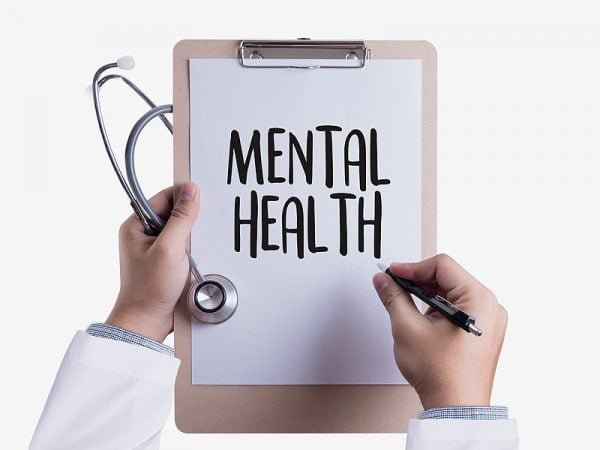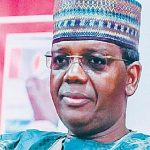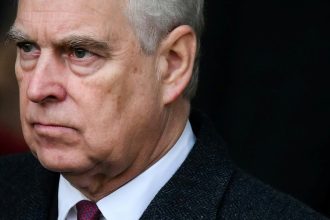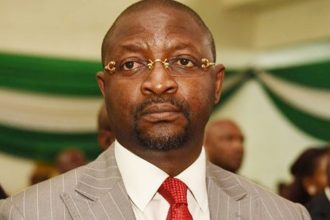Following the increasing cases of trauma and mental health issues in Nigeria and other countries of the world, experts have advocated for regular support from stakeholders and institutions for the victims to enable them recover from the challenging health concerns.
Thus, in a bid to proffer solutions to the trend, three experts will be exposing to the public their latest research and findings on how best to tackle trauma and mental health, which has been documented in a new book.
The book titled: ‘We All Need Healing: Emerging Pathways to Healing from Trauma and Mental Health Experiences, is already sparking a national conversation on collective emotional recovery and mental well-being in Nigeria.
Authored by the trio of Dr. Idiongo Usen Smith, Dr. Fola Rogers-Saliu and Mrs. Grace Alexander-Abimbola, the 16-chapter book, challenges the stigma around mental illness and calls for a new social consciousness where healing becomes a shared responsibility rather than a private struggle.
The book which is expected to be unveiled at a public presentation promises to parade and host some of the country’s top psychologists, faith leaders, and civil society advocates, and blend scientific, spiritual, and cultural insights to showcase how individuals and communities can recover from trauma.
Arewa PUNCH reports that the authors of the initiative while via disclosing via a statement that the book launch would hold online on November 9, 2025 at 6pm via Zoom, added that the launch would feature reading, book review, lived experiences, and questions and answers.
They named the resource persons for the book launch to include: Dr. Enahoro Okhae, CEO Pause Factory & GIG Mobility as the Book Reader; Prof. Babafemi A. Badejo, Professor of Political Science and International Relations as the Chairman; Dr. Ayodele Ajayi, Consultant Psychiatrist/Founder, Tripart Care Emotional Well-being Hub as the Book Reviewer; and Dr. Ozy Okonokhua, Event Anchor and Social Advocate as the compere.
The authors further listed through the same press release obtained by our correspondent other participants at the book launch to include: Rev. Charlene Quaye, Founder, Diamond Pillers Women Ministry; Melisa Pamela Davies, Nurse & Learning Disabilities Professional; and Mrs Olufunke Jegede, Counseling Consultant and CEO Ferns and Roses Horticultural Services.
While speaking in an exclusive interview with Arewa PUNCH on behalf of her co-authors, one of the authors, Dr Idiongo Usen Smith, noted that the idea behind the writing of the book was simply for healing. She explained that they desired to see the world heal from trauma and from mental health struggles, as they believe that it is achievable, one reader at a time.
She said, “You see, when we came together to co-author the book, we only knew that we wanted to make our contribution in the mental health space. However, we decided to start up with some profound conversations about mental health using our personal and professional experiences.
“There, we unravelled that trauma was the bedrock for poor mental health in most cases, and trauma is universal. As professionals, we knew that healing was possible, but how do you heal from what you know nothing about? That gap informed the title and content of this book.”
While noting that the new book, already slated for November 9, 2025, according to Smith, was intentionally timed to coincide around the mental health awareness week.
“We believe that this is a period when the world points a spotlight on the subject of mental health. Everyone gets to hear of or ask questions about mental health at this crucial moment, so it is only fair that our book surfaces at this point to shed light on some of the questions in the minds of people and most especially, bring them the hope and the tools for healing. Our book is written for the global audience and deserves the global spotlight,” she further explained.
On the rationale behind launching the book, Dr Idiongo Usen Smith said it was aimed at creating the needed awareness on trauma and mental health, adding that the book will benefit both the professional, as well as the layman, even as she insisted: “ ‘We All Need Healing’ is not the kind of book that seats on the shelf. We have many upcoming events after the virtual launch. To begin with, we plan to host the physical launch in different locations, countries and continents – these shall be very exciting events where people of like minds come together to unwind, connect, learn, unlearn and relearn about their mental health and work towards healing where necessary.
“Also, we hope to organise some Healing Workshops and Healing webinars to feature our book. Interestingly, we are already applying the contents of the book in practice.
“While Dr Fola Rogers-Saliu and Mrs Alexander-Abimbola have featured excerpts from our book in their public speaking engagements, I, (Dr Smith), have engaged some principles from the book in direct practices with my clients – the reviews from all our engagements have been amazing for us. We are already healing the world.
Continuing, she maintained, “Interestingly, my co-authors and I lead organisations that render mental health services to different populations. Dr Rogers-Saliu is the founder of Versa Moments Concepts, Mrs Alexander-Abimbola is the founder of Star Children Initiative while I am the founder of Wholesome Care Hub.
“Staying connected with our book is easy because we have intentionally employed the elements of language, tone, and artistic design to buy into and sustain each reader’s attention. The message to take home is Healing – healing from trauma and mental health experiences is imperative, possible, sustainable, and for us all.”
Arewa PUNCH further gathered that the 120-page, 16-chapter book is divided into three sections. The first examines the foundations of mental health and trauma; the second explores pathways to healing; and the third encourages readers to take active roles in their recovery journey.
In its opening chapters, the authors debunk myths about mental illness, insisting that conditions such as depression, anxiety, and post-traumatic stress disorder (PTSD) are not signs of weakness or spiritual punishment, instead, they argued that mental health is a human right and a critical component of overall well-being.
For Dr. Fola Rogers-Saliu, another co-author, Counselling Psychologist, and Trauma Specialist, the idea behind the initiative was inspired by the “silent suffering” many Nigerians endure daily.
According to her, too many people are walking around wounded but pretending to be fine. “Healing is not optional; it is necessary for survival and growth,” she said.
Rogers-Saliu explained that the project was borne out of deep reflection on the roots of mental distress.
She stressed, “It is important to offer unconditional love and understanding to family members struggling with mental health. They need to foster a calm, nurturing home atmosphere that promotes emotional well-being. Where necessary, they can seek professional help.
“Schools should integrate Mental Health Education in the curriculum to raise awareness and reduce stigma. Training of staff is necessary to equip teachers and counsellors with skills to recognise and support students facing mental health challenges.
“Establish safe spaces and confidential environments to stimulate students, and be able to share their feelings without fear of being judged. This will assist in promoting student groups or clubs focused on mental health awareness and peer counselling.”
Dr. Rogers-Saliu, who also noted that she and her co-authors were making good efforts to call the attention of the readers to various sections of the book, like, “Guidance on Self-Care” which is to equip readers with healing tools and exercises for managing emotional responses during and after reading, pointed out that “these include suggestions for grounding techniques, mindfulness practices, breathing exercises etc.
“Here are some key messages that our book might aim to convey, along with ways to help readers stay connected to the work and continue their healing, growth and development: Healing is Possible, but it is a process and it takes time; There is a network of people out there who understand; You are in charge of your healing journey; Seeking support can make a significant difference, healing is collective.
“Readers can incorporate what they learnt from the book into their daily lives. They should engage with people in the community and engage with resources. They should also look out for more from us,” she explained.
The Counselling Psychologist and Trauma Specialist appealed for support from notable Foundations, like the Bill & Melinda Gates Foundation; SHM Foundation; Welcome Trust; The Trauma Foundation etc in addressing the growing crisis of trauma and mental health challenges across Africa, while reminding that “many communities lack access to mental health care, yet these issues deeply affect education, productivity, and overall well-being.
“Their leadership and commitment to global health could make a transformative difference in building sustainable mental health programs and healing lives.”
Mrs. Grace Alexander-Abimbola, another co-author, said the book emerged from a growing awareness that mental health challenges are universal and deeply connected to environmental and social realities.
“Poverty, gender-based violence, displacement, and injustice are trauma-inducing forces that can not be ignored,” she stressed. According to her, ‘We All Need Healing’ speaks to both professionals and everyday readers.
“To the expert, it offers evidence and insight. To the ordinary reader, it offers empathy, stories, and hope,” Mrs Alexander-Abimbola maintained.
She insisted that hidden trauma can be recognised through emotions that seem out of proportion to daily events such as chronic irritability, anger without cause, feeling detached from friends and family, social isolation, culminating into loneliness and feeling of shame and guilt.
According to her, the body stores trauma. Hence, it shows on one’s health, explaining that the impacts may include insomnia or lack of sleep, headaches, or fatigue.
“An individual may end up with maladaptive behaviours like using drugs, alcohol and sexual activities to cope. He or she may find it difficult to trust people or be afraid of getting close to people or even forming a relationship
“Other symptoms may include being hyper vigilant or restless always, negative self talk and guilty feelings of not deserving love or happiness.
“It could be religious fanaticism like going to deliverance services, wanting to see his or her pastor or traditional healer or herbalists often.
“Also, avoiding some people or places that might remind them of an incident,” Alexander-Abimbola noted.
The expert further narrated that the inspiration for “We All Need Healing” grew out of the realisation that pain, though often hidden, is a universal human experience. She noted that across cultures, generations, and identities, people carry invisible wounds from loss, injustice, discrimination, displacement, or silence.
“Too often, healing is seen as a privilege for the broken, not as a birthright for us all.
This project was borne from the desire to create space for truth-telling, compassion, and new conversations around mental health and trauma, especially in communities where suffering is endured quietly or spiritualised away. Informed by psychology, faith, and African wisdom traditions, it seeks to uncover pathways that honour both science and spirituality.
“The book also recognises that healing is not linear. It is communal, cultural, deeply personal, and spiritual. By bringing together insights from trauma-informed care, lived experiences, and faith-based resilience, ‘We All Need Healing’ reminds us that restoration is possible for individuals, families, communities, and nations,” she said.
In the foreword, Professor Akindotun Merino, a psychologist and former mental health commissioner, hailed the authors for bridging “science and compassion.”
She described the book as “a gift that offers language for pain and pathways to wholeness,” admitting that, “Each chapter combines theory with practice, covering topics such as trauma-informed care, alternative therapies, creative healing, self-care, nutrition, and spirituality.
“One chapter titled Exploring the Christian Faith and Mental Health Issues examines how faith can strengthen resilience.”
According to Prof. Merino, “The authors argue that healing is not merely about symptom relief but about reclaiming one’s full humanity. Healing is sustained in ordinary choices as much as in extraordinary interventions,” she wrote.
Arewa PUNCH further reports that, beyond its pages, ‘We All Need Healing’ stands as a collective manifesto for a wounded generation seeking peace and wholeness.
The authors advocate an inclusive approach to mental health, one that embraces modern psychology, indigenous wisdom, and faith-based interventions.
In conclusion, the book opens up discussions on “cognitive behavioural therapy, art therapy, yoga, prayers, and community support,” as interwoven tools for recovery.









